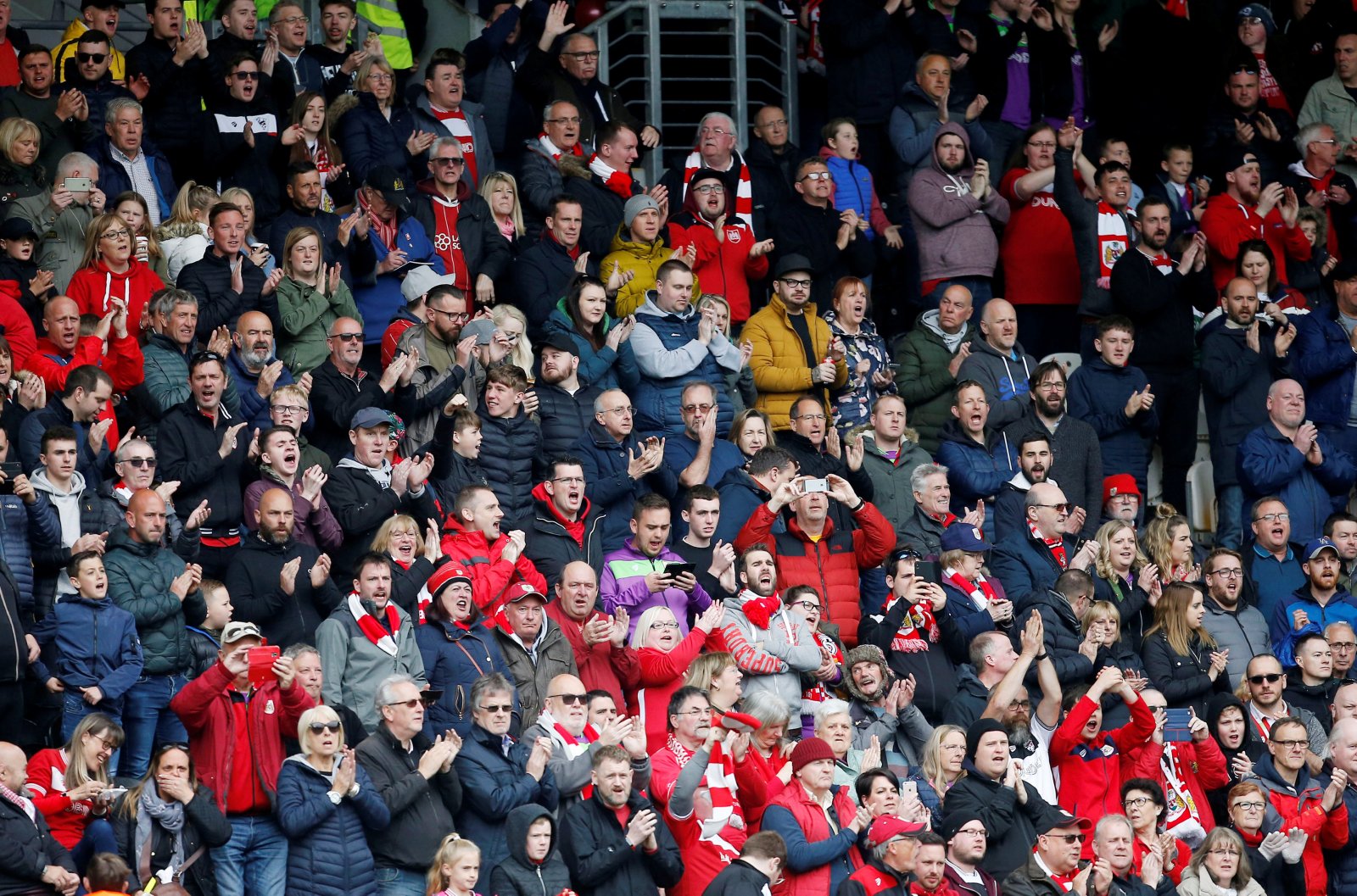Some 48% of fans who regularly attended matches before the pandemic said they would return to watch their team regularly before a Covid-19 vaccine was available. But 12% of fans who did attend regularly said they would never go back to a stadium until a vaccine was available. Among fans who are not regular match-goers, more than two in five (43%) said they would never watch football matches in person before a vaccine, compared with 13% who would go frequently.

Football fans return to some professional games in England: Poll finds division among supporters
After 266 long days, the return of fans to English league football is finally here.
But as clubs in certain areas of England prepare to open their turnstiles for the first time in almost nine months, a BBC Sport poll suggests fans are divided over whether they should be allowed to return before a Covid-19 vaccine is rolled out.
In a Savanta ComRes poll of 2,100 football fans, 52% said they should be allowed to return to watch matches in person before a vaccine is available, while 45% said they should not.
The poll also shows:
- About half of football fans who regularly attended matches before the pandemic said they would return to watch their team regularly before a vaccine was available, while 12% said they would never go back without a vaccine.
- 28% said they cared more about their team now than before the Covid-19 pandemic.
- Younger fans (18-34) were more likely to say they cared more for their club since the coronavirus outbreak.
- Fans are split over who should bear the financial responsibility of ensuring clubs’ survival.
When can fans come back?
Clubs in certain areas of England can now allow a limited number of supporters into their stadiums following a relaxation of coronavirus restrictions.
The nationwide lockdown in England ended at midnight, meaning clubs in tier one of the new restrictions can have up to 4,000 fans attend matches, with up to 2,000 allowed at games in tier-two areas.
The first match with supporters present will be the League Two match between Carlisle and Salford City, which kicks off at 19:00 GMT on Wednesday.
Premier League fans more wary of returning than EFL fans
There has been a growing clamour for fans to be allowed back into stadiums, with supporters missing the buzz of seeing their team in the flesh. And no amount of piped-in crowd noises can replace the authentic atmosphere when following games on TV or radio.
A petition calling on the government to allow fans back gained more than 200,000 signatures, and Prime Minister Boris Johnson reportedly privately indicated to MPs last month that reopening turnstiles as soon as possible was “a personal priority”.
However, the poll suggested a significant number of fans have reservations about heading straight back into stadiums.
There were differences between supporters of clubs in different divisions, both regular and non-regular match-goers, with about a quarter (26%) of Premier League club fans willing to return regularly to the stadium before a Covid-19 vaccine, compared with more than a third (36%) of English Football League (EFL) club fans, and two in five of fans of Women’s Super League (WSL) teams (40%).
Older fans more likely to stay away
Age also seems to be a significant factor in fans’ willingness to return to stadiums before a vaccine – among both regular and non-regular match-goers – with younger supporters much more likely to say they would be ready to head back to stadiums than their older counterparts.
Older people are generally more at risk of becoming seriously ill with coronavirus than younger people, which may explain the differing views across age groups.
The poll shows that more than half of fans aged 55 and over (52%) said they would never return to matches in person before a vaccine is available, compared with 29% of fans aged 35-54 and 14% of supporters aged 18-34.
More than a third (36%) of fans aged 18-34 would return in person to football matches frequently, in comparison to just three in 10 aged 35-54 (28%) or one in seven aged 55+ (14%).
Have fans fallen out of love with their club?
The absence of live football has had an impact on how some supporters feel about their club, with 28% of fans polled saying they cared more about their team than before the pandemic, while 10% of fans said they cared less.
When broken down by age, it appears younger supporters have grown closer to their team than older fans over the past nine months – with 36% of 18-34 year olds saying they now care more about their club, compared with 19% of those aged 55 and over.
Fewer fans of Premier League clubs said they now cared more about the game than did fans of clubs in other divisions.
More fans of Championship clubs (34%), other EFL clubs (35%) and WSL clubs (40%), told the poll they cared more about football in general than before the pandemic, than did Premier League fans (27%).
Fans divided on who should provide financial support
The absence of fans has had a damaging effect on the finances of clubs across the country.
The Premier League is believed to be close to agreeing a bailout deal with English Football League clubs, while a £50m rescue package for clubs in League One and Two has been “agreed in principle”.
Fans are split when it comes to who should take responsibility for ensuring clubs’ survival, with 28% saying it is the responsibility of the individual leagues.
Slightly fewer (24%) said the Football Association should bear the most financial responsibility, 22% said the government and 19% said the clubs themselves.
Savanta ComRes interviewed 5,476 UK adults aged 18+ online between 20 and 24 November 2020, 2,100 of whom qualified as football fans for the purpose of our survey according to Savanta-gathered data on football fans and their demographic profile. Data were weighted to be demographically representative of UK adults 18+ by age, gender, region and social grade. Savanta ComRes is a member of the British Polling Council and abides by its rules. The full poll is published here
Original article 02.12.20 on the BBC Sport website.
To view the original article click here
© The Fan Experience Company 2020
